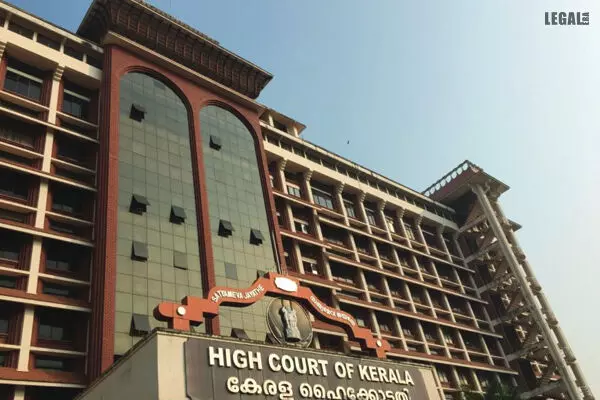- Home
- News
- Articles+
- Aerospace
- Agriculture
- Alternate Dispute Resolution
- Banking and Finance
- Bankruptcy
- Book Review
- Bribery & Corruption
- Commercial Litigation
- Competition Law
- Conference Reports
- Consumer Products
- Contract
- Corporate Governance
- Corporate Law
- Covid-19
- Cryptocurrency
- Cybersecurity
- Data Protection
- Defence
- Digital Economy
- E-commerce
- Employment Law
- Energy and Natural Resources
- Entertainment and Sports Law
- Environmental Law
- FDI
- Food and Beverage
- Health Care
- IBC Diaries
- Insurance Law
- Intellectual Property
- International Law
- Know the Law
- Labour Laws
- Litigation
- Litigation Funding
- Manufacturing
- Mergers & Acquisitions
- NFTs
- Privacy
- Private Equity
- Project Finance
- Real Estate
- Risk and Compliance
- Technology Media and Telecom
- Tributes
- Zoom In
- Take On Board
- In Focus
- Law & Policy and Regulation
- IP & Tech Era
- Viewpoint
- Arbitration & Mediation
- Tax
- Student Corner
- AI
- ESG
- Gaming
- Inclusion & Diversity
- Law Firms
- In-House
- Rankings
- E-Magazine
- Legal Era TV
- Events
- News
- Articles
- Aerospace
- Agriculture
- Alternate Dispute Resolution
- Banking and Finance
- Bankruptcy
- Book Review
- Bribery & Corruption
- Commercial Litigation
- Competition Law
- Conference Reports
- Consumer Products
- Contract
- Corporate Governance
- Corporate Law
- Covid-19
- Cryptocurrency
- Cybersecurity
- Data Protection
- Defence
- Digital Economy
- E-commerce
- Employment Law
- Energy and Natural Resources
- Entertainment and Sports Law
- Environmental Law
- FDI
- Food and Beverage
- Health Care
- IBC Diaries
- Insurance Law
- Intellectual Property
- International Law
- Know the Law
- Labour Laws
- Litigation
- Litigation Funding
- Manufacturing
- Mergers & Acquisitions
- NFTs
- Privacy
- Private Equity
- Project Finance
- Real Estate
- Risk and Compliance
- Technology Media and Telecom
- Tributes
- Zoom In
- Take On Board
- In Focus
- Law & Policy and Regulation
- IP & Tech Era
- Viewpoint
- Arbitration & Mediation
- Tax
- Student Corner
- AI
- ESG
- Gaming
- Inclusion & Diversity
- Law Firms
- In-House
- Rankings
- E-Magazine
- Legal Era TV
- Events
Kerala High Court to consider royalty paid to the government on GST

Kerala High Court to consider royalty paid to the government on GST
The bench granted interim relief to the petitioner until further orders
The Kerala High Court has admitted a plea that has raised significant questions. The plea quizzed whether the royalty paid to the government qualified as tax and if the Goods and Services Tax (GST) could be imposed on it.
The petitioner is engaged in the business of quarrying granite stones as per the quarrying lease granted to it by the government under the erstwhile Kerala Minor Mineral Concession Rules, 1967.
As per the lease deed, the anticipated royalty was fixed at Rs.16 per ton for a period of one year. However, pursuant to the additional quarrying lease, it was later enhanced to Rs.24.
In the interim, the State Tax Officer issued intimation to the petitioner ascertaining tax and penalty. He treated the royalty paid to the government as part of the taxable turnover for the services received. The officer classified it as a consideration for licensing services received from the government. This pertained to the right to use minerals.
Thereafter, he issued a demand notice to the petitioner ordering him to pay the disputed tax and penalty. The burden was cast on the petitioner under the Reverse Charge Mechanism (RCM).
The petitioner responded to the demand notice with a consolidated reply, but ignoring it, the tax officer issued a fresh demand notice with an identical claim. The petitioner then submitted another reply. He reiterated the impropriety and illegality of the GST levied on the royalty paid to the government for the mineral extracted by him.
Next, the tax officer issued a show-cause notice under the Central Goods and Services Tax and the Kerala Goods and Services Act.
Appearing for the petitioner, advocates Mohammed Sadique and Shankar V pointed out that the tax officer had failed to note the settled legal position on the concept of royalty by the Supreme Court. The counsels cited an earlier case where the apex court had held that royalty was tax.
They further argued that the Constitution of India also defined taxation to include the imposition of any tax or impost, whether general or local or special. Therefore, the royalty payable on the extraction of minerals being in the nature of statutory impost fell under the taxation preview.
The petitioner prayed that the proceedings for completion of assessments in pursuance of the show cause notices be stayed pending disposal of the petition. Justice Bechu Kurian Thomas granted interim relief to the petitioner.



